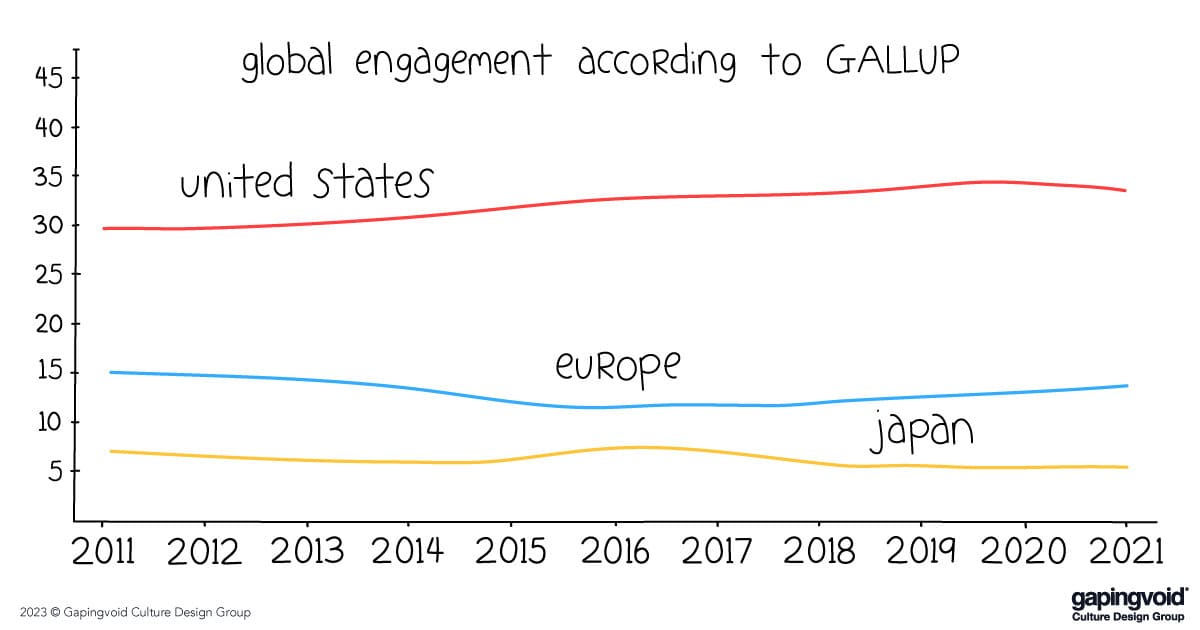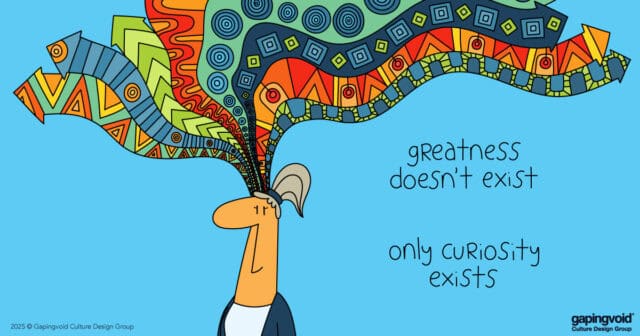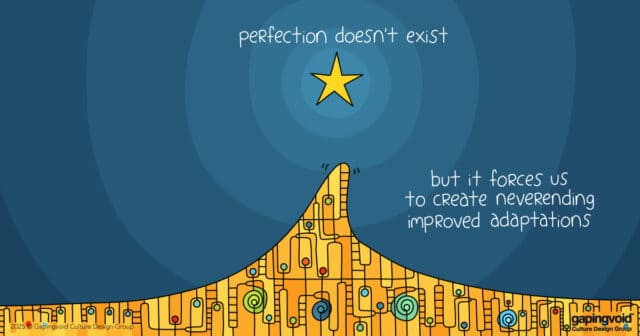
“The reports of my death are greatly exaggerated.” -Mark Twain.
So are the reports of everyone hating their jobs, apparently. It turns out “The Great Resignation” wasn’t that great, after all.
According to the Wall Street Journal, “Job satisfaction hit a 36-year high in 2022, reflecting two effects of the tight pandemic labor market: The quality of jobs improved as wages and work flexibility increased, and workers moved into positions that were a better fit.”
Derek Thomson over at The Atlantic adds that compared to Canada, Australia, every country in Europe and Japan, the data says Americans are “astonishingly happy and engaged” with their work. Apparently the US job satisfaction is *six* times higher than Japan’s. Six!
In other words, besides the big hiccup that was the international banking crisis of 2007-2009, things have held pretty steady in the last 36 years. The media just confused a wee blip with the real world, same as it ever was.
Yes, work is called “work” for a reason. Yes, if “work” was so great, they wouldn’t have to pay you. But we also know, in our heart of hearts, that’s not wholly true.
At least some of us know deep inside that this idea that…
we must work in order to pay for our life is a sad but true reality (at least until UBI comes along or whatever), so we should all turn up for the hours we are being paid, do the labor, and get back to family and friends (hopefully not too late), which is where “real life” happens and we find happiness
… is a malevolent lie.
This lie is often called “work/life balance.” And it’s a deviously demotivating false dichotomy. A narrative designed to stigmatize work and trivialize what work is really all about. It reduces transformation to a mere transaction.
Abraham Maslow and many scholars before and since have repeatedly demonstrated that true life satisfaction comes not from getting “stuff,” but from feeling like you are growing, mastering and finding increasing meaning in your life. Of course, you can find all that “meaning” through church, family, and hobbies, but actual ‘work’ presents you with that opportunity to achieve it every hour of every day.
Call it unpopular, but we believe that work is not just what you do to pay your bills, it is the major way we express ourselves (outside of the family).
Which explains why if you are only doing it for the money, you’ll probably be pretty unhappy.
This is why when you see people that perform at high levels, you see them ‘self-actualizing’ in real time as they produce value for their employer, for their customers, and for their mission. When you see this in action, you can’t help but immediately realize that mastery is indeed worth more than money. It’s how the transformation we are all seeking manifests itself. It is the joy of being alive on a daily basis that we all long for.
Yes, there are some people who hate their jobs, just like there are some people who hate kittens. But those poor souls are not the point. The point is work is not ultimately about the financial aspect, it is the meaning and personal growth that it provides us with.
If you aren’t growing, we implore you to go look for something else to do, because life is too short not to risk going after the transformation the Gods have intended for you.



